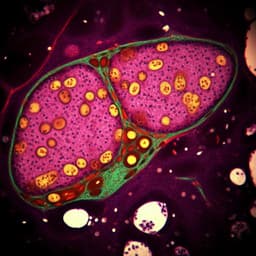
Psychology
The effects of polygenic risk for psychiatric disorders and smoking behaviour on psychotic experiences in UK Biobank
J. García-gonzález, J. Ramírez, et al.
Discover how smoking and genetics intertwine to influence psychotic experiences in this captivating study by Judit García-González, Julia Ramírez, David M. Howard, Caroline H. Brennan, Patricia B. Munroe, and Robert Keers. The research delves into the impact of smoking behavior and genetic predisposition on psychiatric disorders, unveiling significant associations that challenge our understanding of mental health.
Related Publications
Explore these studies to deepen your understanding of the subject.







